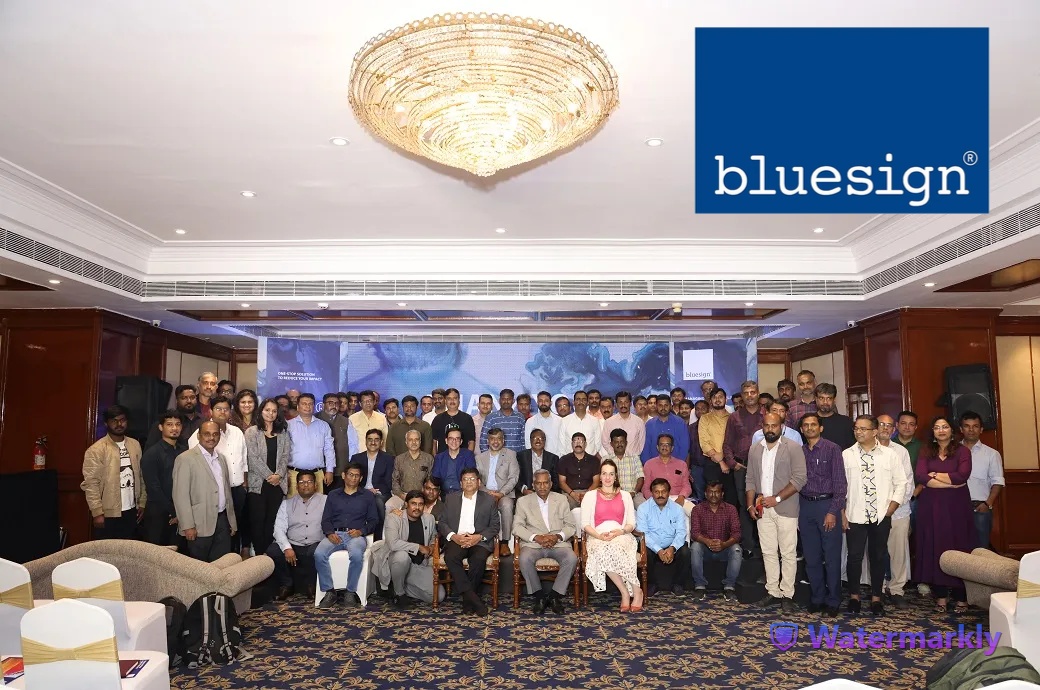TEXTILE SUPPLY CHAIN SUSTAINABILITY NATIONAL
TIRUPATI, ANDHRA PRADESH, INDIA
By IFAB MEDIA - NEWS BUREAU - August 10, 2023 | 225 4 minutes read
Leading the charge in sustainable practices for the global textile supply chain, Bluesign unveiled its transformative 'Impact' service tailor-made for the Indian market. The service was introduced during enlightening seminars held on August 4, 2023, in Tiruppur, and on August 2, 2023, in Bengaluru. The seminars, themed 'Sustainable Textile Manufacturing – the bluesign way,' drew the participation of industry titans and association bodies.
The event in Tiruppur, held at Poppys Vista Hotel, was organized in partnership with AIC NIFT TEA, TEA, TEKPA AEPC, ROSPA, FIEO, and DAT. Dr. A Sakthivel, Honorary Chairman and Founder President of the Tiruppur Exporters Association and President of FIEO, graced the event. Distinguished speakers including TR Srikanth, President of TEKPA; Raju VR Palaniswamy, President of ROSPA; K Nagesh, President of Tiruppur Dyes and Chemical Merchant Association; and V Sudhakar, Joint Secretary of Tiruppur Dyers Association, shared their insights, as highlighted in a press release by Bluesign.
In Bengaluru, the impactful seminar unfolded at the Chancery Hotel, in collaboration with bluesign system partner Resil Chemicals. Eminent Indian brands such as Arvind Ltd, ABFRL, Reliance, Raymond, Shahi Exports, Myntra Fashions, and Page Industries participated, alongside representatives from prominent buying and dyeing houses.
During the events, S Periswamy, CEO of AIC NIFT TEA, elaborated on environmental, social, and governance (ESG) aspects, emphasizing the global emphasis on an ESG framework, particularly by G20 nations. The seminars, skillfully presented by Prashant Pote, Country CRM India, and Katharina Mayer, Regional CRM for the Indian Subcontinent, delved into the Bluesign Story, spanning over 23 years of global influence, and the comprehensive suite of services offered by Bluesign.
Katharina Mayer articulated, “Bluesign stands as a comprehensive solutions ecosystem for the textile value chain, with a laser focus on sustainable chemistry. Through meticulous on-site evaluations, input stream management, and proactive chemical change oversight, the Bluesign team collaborates holistically with system partners, encompassing brands, manufacturers, and chemical suppliers. This united effort fosters unique solutions that elevate environmental performance, working conditions, and resource efficiency. Our paramount goal is to ensure the utmost safety for people, the planet, and consumers while minimizing ecological impact."
Mayer further emphasized, “The landscape of sustainability has evolved beyond mere adoption of 'right chemicals' to minimize harm to people and the environment. It now encompasses responsible production, with a deep understanding of production site impact data and the power to strategically mitigate these impacts. As Lord Kelvin, the renowned British scientist, once stated, ‘If you can't measure it, you can't improve it.’
"With a growing network of over 800 Global Bluesign System partners and counting, India's immense potential market aligns perfectly with our service offerings. We eagerly anticipate the participation of brands, mills, and dyeing houses in our system partnership."
"The dynamic shifts occurring within India's textile industry positions it to transcend being solely price-sensitive. It has the capacity to establish itself as a responsible and esteemed contributor to sustainable and clean textile production. Our key takeaway from these seminars is the unveiling of Bluesign's 'Impact' service – a streamlined variant of our flagship system partnership. This accessible service equips companies with competitive impact reporting, aligning with Bluesign's renowned verification standards and enabling organizations to present a sustainability index," Mayer concluded.
The enthusiastic response from the attending manufacturers underscores the resonance of Bluesign's impact measurement service, a crucial facet in fulfilling society's and brands' growing demand for sustainable practices.









